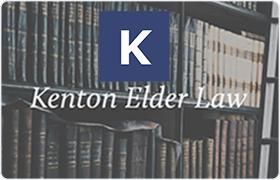Millersburg Estate Lawyer, Kentucky, page 2
Sponsored Law Firm
-
 x
x

Click For More Info:
-
Kenton Elder Law
713 College Rd Paris, KY 40361» view mapEstate Law Helping Generation After Generation
Kenton Elder Law works with families to ensure smooth financial transitions and long term care arrangements as older adults move into later stages of life.
800-932-7301
Hugh Trigg Mitchell
Estate, Tax, Corporate, Banking & Finance
Status: In Good Standing *Status is reviewed annually. For latest information visit here
Terri Renee Stallard
Litigation, Trusts, Estate Planning, Estate, Corporate
Status: In Good Standing *Status is reviewed annually. For latest information visit here
Martha Jean Griffin
Elder Law, Estate Planning, International Tax, Trusts
Status: In Good Standing *Status is reviewed annually. For latest information visit here
Jonathan A Hall
Lawsuit & Dispute, Trusts, Elder Law, Civil & Human Rights
Status: In Good Standing *Status is reviewed annually. For latest information visit here
Melissa H P Palmer
Trusts, Gift Taxation, Elder Law, Civil & Human Rights
Status: In Good Standing *Status is reviewed annually. For latest information visit here
Heather Pack Howell
Litigation, Estate, Divorce & Family Law, Personal Injury
Status: In Good Standing *Status is reviewed annually. For latest information visit here
Ralph C Salyer
International, Gift Taxation, Business, Corporate
Status: In Good Standing *Status is reviewed annually. For latest information visit here
Dustin C. Beard
Estate Planning, Workers' Compensation, Elder Law, Personal Injury
Status: In Good Standing *Status is reviewed annually. For latest information visit here
Judith Gayle Walden
Trusts
Status: In Good Standing *Status is reviewed annually. For latest information visit here
Charles W Curry
Lawsuit & Dispute, Trusts, Estate, Civil Rights
Status: In Good Standing *Status is reviewed annually. For latest information visit here
 Carolyn Kenton Paris, KY
Carolyn Kenton Paris, KY Practice AreasExpertise
Practice AreasExpertise